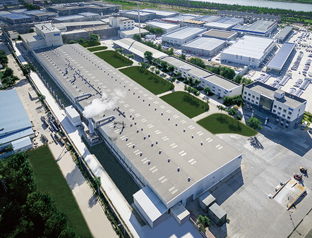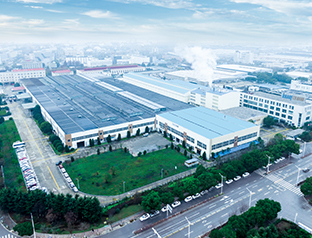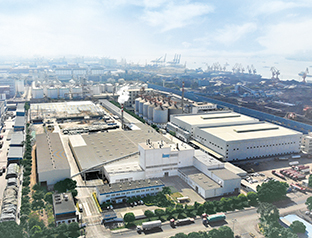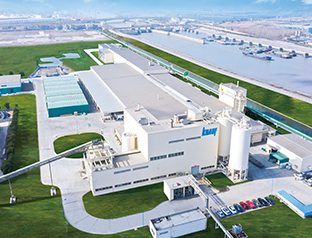In the past thirty-plus years, Knauf has consistently seen China as an important strategic market and has endeavored to localize R&D and production in the areas of technological innovation and building material solutions to meet the constantly escalating building needs of Chinese customers for creating comfortably safe living environments while also helping Chinese consumers raise their quality of life.
The late 1970s were a time when China started to introduce policies of economic reform and opening up, encouraging the input of foreign capital and advanced science and technology. At that time, Knauf was providing advanced equipment to local building materials enterprises and introduced the first plasterboard production line to China.
In 1995, Knauf opened the first production base in Wuhu, and in 1996 and 1998 built plants in Tianjin and Dongguan. Today, Knauf maintains a nearly 25% share of the domestic high-end plasterboard market and provides 100 million square meters of green building material products for China annually. Knauf has set up a highly mature and comprehensive service system of production, sales, and technical support in China.
In 2013, Knauf welcomed the official completion of its fourth plant in China in Taicang, Jiangsu Province. This signals the delivery of more products and new technologies to China.




As a responsible corporation, Knauf takes multiple measures at its four plants in China to reduce environmental pollution. All of the plants use natural gas to run their production lines in place of diesel and heavy oil. Coal-burning and gas-burning heating and drying systems have been replaced, and power plant residual heat is used to complete the production process. The plants also actively carry out landscaping work to increase the landscaped area, reduce carbon emissions and environmental pollution. In addition, each factory enthusiastically promotes industry improvement and social development in its local area and supports the cultivation of industry talents through organizing industry symposiums, holding broad-ranging technology exchanges, and establishing partnerships with local universities.
Knauf Wuhu company is the first production base Knauf opened in China. Established in 1996, the Wuhu company has provided professional and reliable total solutions for many well-known projects and landmark buildings in central China, i.e. Jiangsu, Zhejiang, Shanghai, Anhui, Hubei, Henan, Hunan, Jiangxi, Sichuan, Chongqing, Yunnan, Guizhou, and Tibet Provinces. It has also contributed significantly to the construction of the buildings displayed at the 2010 Shanghai World Expo.
Established in 1996. Nowadays, Knauf Tianjin has provided lots of perfect system solutions to key projects in north China, such as 80% of the Beijing 2008 Olympic projects, i.e. the National Stadium (Bird's Nest), the National Swimming Center (Water Cube), and the Tianjin Olympic Center Stadium (Water Drop), the new site of CCTV, China International Trade Center Phase 3, and the Dalian International Convention and Exhibition Center.
Knauf Dongguan was established in 1998. In 2012, Knauf Dongguan upgraded its plasterboard line to increase 30% annual capacity. With its professional solution and perfect technical support, Knauf Dongguan won many well-known projects in South China, such as KK100, West Tower, Guangzhou Opera House, venues for University Games in Shenzhen, Shangri-La Hotel, etc.
In 2013, Knauf Taicang was completed and put into operation as Knauf’s fourth plant in China.
The production line of Knauf Taicang is utilized the latest technologies imported from European. In addition, German engineers designed and installed all the equipment to guarantee the precision and reliability of the control system. The completed system features a high degree of automation and stability.